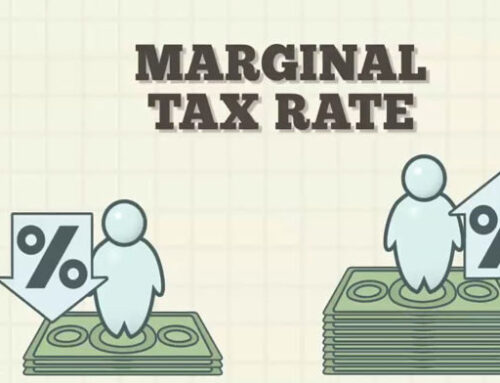The election results are in, and the Liberals have been chosen to govern Canada for potentially another four years, albeit with a minority government. Minority governments operate differently from majority governments, implications on taxes requiring more effort to pass bills and implement changes. As a result, any tax changes pledged during the campaign remain tentative until the economic update is announced. Rest assured; we will provide you with detailed insights on how these changes may affect your taxes. In the meantime, we understand your curiosity about the election promises. Allow us to break them down for you.
New Tax Breaks and Support Measures: Implications on Taxes
The Liberal government has introduced several measures that will benefit homeowners, parents, and seniors, while also implementing changes to tax rates. Here’s a breakdown of the key updates:
- Tax Breaks for New Homeowners: In their previous budget, the Liberals increased the maximum withdrawal limit of the RRSP Home Buyers Plan from $25,000 to $30,000. Additionally, they will provide interest-free loans of up to $40,000 to homeowners for energy-efficient renovations. Moreover, grants of up to $5,000 will be offered to individuals purchasing newly built homes certified as zero-emissions. In high-cost areas like Toronto, Vancouver, and Victoria, the qualifying value for the First-Time Homebuyer Incentive will be increased to $800,000.
- Enhanced Support for Parents: Parents can expect increased Canada Child Benefit payments, with a 15% boost for children under the age of one, amounting to an additional $1,000 per year. The Child Disability Benefit component of the CCB will also be doubled, providing an extra $2,800 per year. Additionally, the government aims to create 250,000 before and after-school spaces for children under 10, accompanied by a 10% reduction in associated fees.
- Tax Boost for Seniors: Seniors aged 75 and above will experience a 10% increase in Old Age Security benefits. The Liberal government is also considering a potential 25% increase in the Canada Pension Plan survivor benefit, although the timing of this adjustment remains undisclosed.
- Changes to Tax Rates: To provide relief for taxpayers, the Liberals have committed to raising the basic personal amount of income tax rates to $15,000. However, this increase will only apply to individuals with taxable income below $147,667. Those earning over $210,371 will not benefit from this adjustment. Additionally, the government plans to introduce a 10% luxury tax on luxury vehicles, boats, and personal aircraft valued above $100,000.
These policy changes aim to offer support to various segments of the population while also implementing alterations to the tax landscape.

Also Read: Are tipping subject to taxation in Canada?
Tax Breaks and Support: Highlights from the Liberals’ Budget Plans
New Homeowners’ Tax Breaks:
In their latest budget, the Liberals have expanded support for new homeowners. Alongside increasing the maximum withdrawal limit of the RRSP Home Buyers Plan from $25,000 to $30,000, they are now offering interest-free loans of up to $40,000 for energy-efficient home renovations. Additionally, buyers of newly built zero-emissions certified homes will be eligible for a grant of up to $5,000. The First-Time Homebuyer Incentive, a shared equity mortgage program, will also see an increase in the qualifying value to $800,000 in high-cost housing areas such as Toronto, Vancouver, and Victoria.
Enhanced Support for Parents:
Parents will receive increased assistance as well. The Liberals have pledged a 15% increase in Canada Child Benefit payments for children under one year old, amounting to an additional $1,000 per year. They also plan to double the Child Disability Benefit component of the CCB, providing an additional $2,800 per year. Moreover, the government aims to create 250,000 before and after-school spaces for children under 10, implications on taxes along with a 10% reduction in fees, offering some relief to parents.
Boost for Aging Seniors:
Seniors over 75 can look forward to a 10% increase in Old Age Security benefits under the Liberal government’s plans. Furthermore, they are considering a potential 25% increase in the Canada Pension Plan survivor benefit, though the timing of this change remains uncertain.
Changes in Tax Rates:
The Liberals are committed to raising the basic personal amount of income tax rates to $15,000, but this increase will apply only to individuals with taxable income less than $147,667. Taxpayers earning more than $210,371 will not benefit from this increase. Additionally, a 10% luxury tax will be introduced for cars, boats, and personal aircraft costing over $100,000, impacting those who wish to indulge in luxurious transportation choices.
Change is a constant in politics, and a new government can bring about significant shifts in policy and priorities. One area that is often affected by these changes is taxation. Whether you’re an individual taxpayer or a business owner, it’s essential to stay informed about the implications of a new government on your taxes. In this blog, we will explore the potential effects of a new government on taxation and provide some tips on how to navigate these changes effectively.
Tax Policy Changes
One of the most significant ways a new government can impact your taxes is through changes in tax policy. These changes can include alterations to income tax rates, deductions, credits, and exemptions. The government may also introduce new taxes or eliminate existing ones. It’s essential to pay attention to these policy changes, as they can directly affect your financial situation.
For example, a government might choose to increase tax rates for high-income earners while providing tax breaks for low and middle-income individuals. This can lead to a redistribution of the tax burden and impact your disposable income.
Tax Planning and Investment Strategies
In response to changes in tax policy, it’s crucial to adjust your tax planning and investment strategies. Tax-efficient investments, such as tax-advantaged retirement accounts or municipal bonds, can become more or less attractive depending on the new tax rules. Consulting with a financial advisor or tax professional can help you make informed decisions to minimize your tax liability and maximize your financial well-being.

Also Read: Are Gifts To Customers And Business Associates Deductible Expenses?
Impact on Businesses
If you own or operate a business, a new government can have a significant impact on your tax obligations. Changes in corporate tax rates, deductions, and credits can influence your bottom line. Additionally, alterations in regulations and government programs can affect your business’s tax compliance requirements.
For example, a government may incentivize certain industries through tax credits or impose stricter environmental regulations that can have financial implications. Staying abreast of these changes and adapting your business strategy accordingly is essential to ensure your company’s financial health.
Estate and Inheritance Taxes
Estate and inheritance taxes are areas of taxation that can be subject to change with a new government. Different administrations may adjust the exemption thresholds or tax rates for these categories. This can affect your estate planning strategies and the potential tax burden on your heirs.
To navigate these changes, it’s advisable to work closely with estate planning professionals who can help you create a plan that aligns with current tax laws and minimizes the impact of estate and inheritance taxes.
Advocacy and Civic Engagement
Finally, it’s essential to remember that you have a voice in the democratic process. Advocacy and civic engagement can be effective ways to influence tax policy decisions and ensure that your concerns are heard. You can join or support organizations that advocate for specific tax policies or engage with your elected representatives to communicate your views on tax-related issues.
Conclusion
A new government can bring about changes in tax policy that have far-reaching implications for individuals and businesses. To navigate these changes effectively, it’s essential to stay informed, adapt your financial strategies, and, when necessary, engage in advocacy efforts. By taking a proactive approach to managing your taxes in the face of political change, you can better secure your financial future and achieve your long-term financial goals. Remember that consulting with tax professionals and financial advisors can provide valuable insights and guidance tailored to your specific situation.
Recent Posts
FAQ
What tax boost is the aging senior population expected to receive under the liberal government?
Seniors over 75 will likely experience a 10% increase in Old Age Security benefits.
Is there a possibility of an increase in the Canada Pension Plan survivor benefit for seniors?
Yes, there is a possibility of a 25% increase in the Canada Pension Plan survivor benefit, although the timing for this change is currently uncertain.




